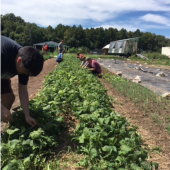
Abstract: This research explores the role that place attachment and place meaning towards an urban farm play in predicting undergraduate students’ civic-mindedness, an important factor in sustainability and social change. In 2017 and 2018, three STEM courses at a private university in the Midwest incorporated a local urban farm as a physical and conceptual context for teaching course content and sustainability concepts. Each course included a four to six-week long place-based experiential learning (PBEL) module aimed at enhancing undergraduate STEM student learning outcomes, particularly place attachment, situated sustainability meaning-making (SSMM), and civic-mindedness. End-of-course place attachment, SSMM, and civic-mindedness survey data were collected from students involved in these courses and combined with institutionally provided demographic information. Place attachment and SSMM surveys, along with the course in which the students participated, were statistically significant predictors of students’ civic-mindedness score.
Continue Reading
This piece explores the author’s relationship with fire (domestic fire and wildfire) and the lessons inherent in a rural life that is both dependent on fire and threatened by it. It explores the curriculum of fire as one of nonattachment, of community cohesion, of the legacy of colonialism and of the connection to place.
Continue Reading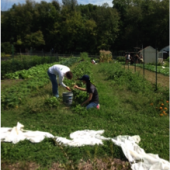
Abstract: Campus agriculture projects are increasingly being recognized as spaces impactful to student engagement and learning through curricular and co-curricular programming; however, most campus farm activities are limited to agriculture or sustainability programs and/or co-curricular student clubs. Thus, campus farms are largely underutilized in the undergraduate curriculum, marking a need to explore the efficacy and impact of engaging a diverse array of disciplinary courses in the rich social, environmental, and civic context of local sustainable agriculture. The Farm Hub program presented here incentivizes instructors to refocus a portion of existing course content around the topic of local, sustainable agriculture, and reduces barriers to using a campus farm as a situated learning context for curricula. A pedagogical framework founded in place-based experiential learning (PBEL) theory was developed to guide instructors in the development and implementation of 4–6-week inquiry-based PBEL modules embedded in existing courses. The framework was converted into a research protocol to quantify program implementation fidelity and PBEL best practice adherence for the proposed lesson plans (intended) and their implementation (applied). The framework enables the development of a cohesive cross-curricular program so that the impact of implementation fidelity and best practice adherence to student learning outcomes in scientific literacy, place attachment and meaning, and civic mindedness can be assessed and the results utilized to develop a formal farm-situated PBEL pedagogical taxonomy. This framework can be applied to PBEL curriculum in natural spaces beyond campus farms.
Continue Reading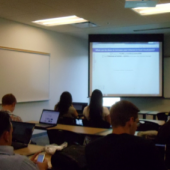
Abstract: Finding time for place-based instruction can be difficult using a traditional ground classroom or online format. This is a case study report showing how blending the two modalities can increase opportunities to go more in depth on environmental topics. This blending of both classroom and online creates a sense of place and encourages teaching with multiple learning styles. The increased classroom flexibility allows more individualized instruction for student’s needs and interests. This report will share how an environmental biology class implemented a blended learning class over two semesters. Results of this pilot show an increased student effort by allowing for more varied learning about the local environment.
Continue Reading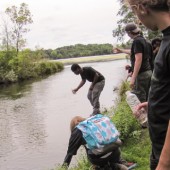
This case study describes an art-led environmental education project at an environmental charter high school in Minnesota. The project is a pilot of the model called Earth Systems Journey, and the theoretical approach of this model is summarized. Its goal is to provide experiential integration: a sense of self and place that are integrated with each other. The case study project, called “River Journey: Exploring the Value of the Mississippi River,” took place in the 2014-2015 school year with students in grades 9-12. River Journey takes students on a journey of their place in the local water cycle to discover how the water that flows through their school’s kitchen sink is interconnected, both upstream and downstream, to the Mississippi River through water and wastewater treatment and distribution infrastructure. Students create a GIS story map as a way to reflect on and integrate their learning and as a public educational resource. The idea of river exploration expands throughout the curriculum in the second half of the year, and another set of GIS story maps explore the river from the perspective of personal stories, population-water resource tensions, water as a strategic element in the Civil War, and ecological issues that occur along the length of the Mississippi River. Art and story inform the design of the journey and its dramatic props, including GIS, used throughout the experience.
Continue ReadingPDF:McClanahanSpring2014 Abstract: In this state of the field response, I suggest that Education for Sustainable Development (ESD) be considered a mindset that is necessary for teacher educators understand and incorporate into their daily business of educating our future teachers, regardless of grade level or content area. Key Words: Education for Sustainable Development, Education for Sustainability, […]
Continue Reading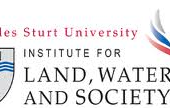
PDF: Rafferty and Laird, Spring 2013 Abstract: This paper explores the observations and perceptions of school children as they engage with nature through place based environmental experiences. The paper reports on two projects, one based in the USA and the other in Australia, designed to promote understanding of sustainability through outdoor […]
Continue Reading